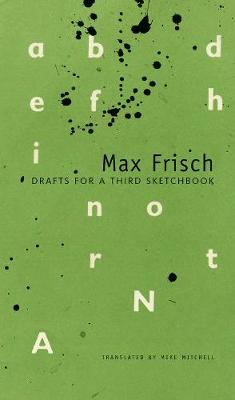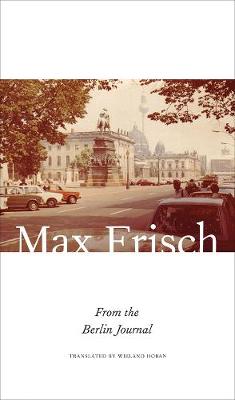SB - The Swiss List
2 total works
New York...I HATE IT...I LOVE IT...I DON'T KNOW...". These are the reflections of Max Frisch, writing from his apartment in the Big Apple near the end of the twentieth century. Beginning in 1946 and continuing until his death at the age of eighty, the man whom many see as Switzerland's greatest writer kept a series of sketchbooks to record his reactions to events of the time and people he encountered in his daily life. Neither a commonplace book nor a diary, these volumes contain the seeds for many of Frisch's most famous works - including Homo Faber, I'm Not Stiller, and Man in the Holocene - as well as his cynical meditations, fictions, incidents, conversations, meetings, newspaper headlines, and dark fantasies - anything, in short, that the author found significant. Drafts for a Third Sketchbook treats the reader to an even more personal document. Unpublished at the time of Frisch's death, this collection was edited by Peter von Matt, president of the Max Frisch Foundation, with an eye toward expanding our knowledge of this legendary writer's last days.
Ranging from a couple of sentences to several pages, the sketches collected in this volume recall the United States of the Reagan years and the author's own growing sense of age as both the threat of nuclear war and some of his most treasured friendships pass on. Representing an unusually personal vista onto the world as Frisch knew it, this is a wonderful self-portrait of an extraordinary intelligence.
Ranging from a couple of sentences to several pages, the sketches collected in this volume recall the United States of the Reagan years and the author's own growing sense of age as both the threat of nuclear war and some of his most treasured friendships pass on. Representing an unusually personal vista onto the world as Frisch knew it, this is a wonderful self-portrait of an extraordinary intelligence.
Max Frisch (1911 91) was a giant of twentieth-century German literature. When Frisch moved into a new apartment in Berlin's Sarrazinstrasse, he began keeping a journal, which he came to call the Berlin Journal. A few years later, he emphasized in an interview that this was by no means a "scribbling book," but rather a book "fully composed." The journal is one of the great treasures of Frisch's literary estate, but the author imposed a retention period of twenty years from the date of his death because of the "private things" he noted in it. From the Berlin Journal now marks the first publication of excerpts from Frisch's journal. Here, the unmistakable Frisch is back, full of doubt, with no illusions, and with a playfully sharp eye for the world. From the Berlin Journal pulls from the years 1946 49 and 1966 71. Observations about the writer's everyday life stand alongside narrative and essayistic texts, as well as finely-drawn portraits of colleagues like Gunter Grass, Uwe Johnson, Wolf Biermann, and Christa Wolf, among others.
Its foremost quality, though, is the extraordinary acuity with which Frisch observed political and social conditions in East Germany while living in West Berlin.
Its foremost quality, though, is the extraordinary acuity with which Frisch observed political and social conditions in East Germany while living in West Berlin.

